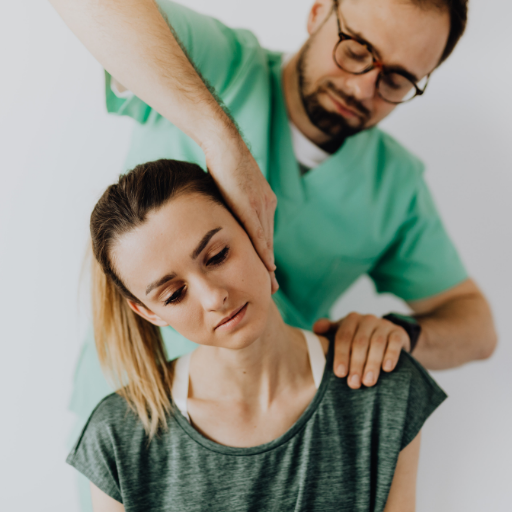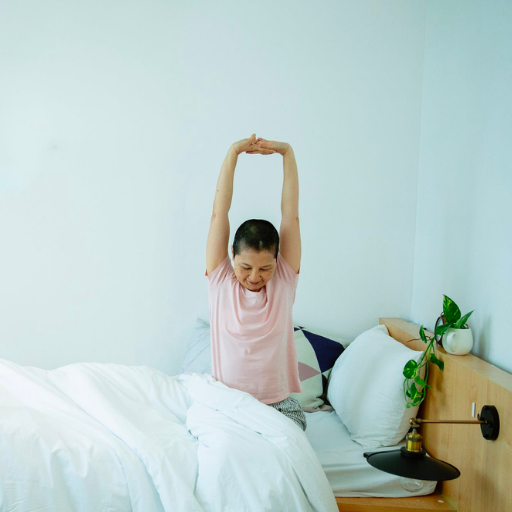Wellness Blog
The content on this blog is for general informational purposes only and is not a substitute for professional medical advice, diagnosis, or treatment. Always consult your healthcare provider before making changes to your health routine or taking new supplements.
All you need to know about muscle spasms
Almost everyone has experienced muscle cramps or spasms at least once in their life. While generally harmless, muscle cramps cause quite an inconvenience and are often quite painful. Read on to find out everything you need to know about muscle spasms. What are muscle spasms?Muscle spasms or cramps are the sudden and painful tightening or contraction of your muscles (1,2,3,4). People who have experienced muscle spasms describe them as uncomfortable twitches that range from mild to intense. Consequently, the pain that they produce also varies from mild discomfort to severe pain. Cramps are common, involuntary, and often, unexpected. Most cases of cramps generally last for a few minutes. These spasms or cramps are typically harmless, though they do cause some mild discomfort because of the temporary pain they produce. The exact cause behind spasms is yet to be determined. However, some risk factors, such as age, poor posture and/or general poor physical condition, are believed to trigger the twitches (6). What causes muscle spasms?As stated earlier, the exact cause of a muscle spasm is still unknown. However there are some factors that can increase the risk of having them (1,2,3,4). Inadequate blood supplyWhen the arteries that deliver blood to your muscles narrow, they might lead to muscle cramps and pain (7). Usually, this occurs when you are exercising or doing intense movements (8). Nerve compressionThe compression (pinching) of nerves in your spine might lead to muscle cramps (9).Micronutrient deficiencyDeficiency in essential minerals in your diet, like magnesium, might lead to muscle cramps (10). Lack of stretchingMuscle cramps are more likely to occur when the body is stiff (12). Daily stretching can decrease the chances of experiencing muscle cramps (11). Tired musclesAfter a grueling workout, your muscles are more likely to spasm due to a myriad of reasons (13). Factors such as lack of blood supply, dehydration, or even nerve compression, are thought to be the cause (14).DehydrationAs mentioned earlier, lack of water in your body might lead to muscle spasms (15). Muscles tend to be stiff and sore when they lack water (16). Exercising in the heatPhysical activity under the sweltering sun might cause muscle cramps (17). Working out in the heat can lead to dehydration and general muscle fatigue, two factors that may lead to muscle spasm (18). Long periods of inactivitySitting for too long or even simply retaining an unnatural posture for too long can lead to muscle cramps. This can specifically cause muscle cramps in your legs (19).What should I watch out for?Muscle spasms vary in intensity. This means that for some, it can just feel like a mild, uncomfortable twitching on your sides. While to others, the pain can be debilitating. Usually, it's hard to touch the area experiencing the spasm (2). One important thing to keep in mind is that muscle spasms are sudden and often come without warning.Conditions that predispose a person to muscle spasmsThere are some risk factors when it comes to muscle spasms. These factors might increase the risk of you experiencing cramps. Here are some of them (1,2,3,4):AgeAs people age, they tend to be more susceptible to experiencing cramps. This is because we are likely to lose muscle mass as we age. This causes the remaining muscles to be overstressed as they need to carry more load (20).Line of work/habitAthletes or people often involved in sports, especially when they stay too long in the heat, are more likely to experience spasms due to muscular fatigue and dehydration (16). PregnancyPregnant women are more likely to experience muscle spasms or cramps. This is why many pregnant women complain about muscle spasms in legs (21). Other medical conditionsSome medical conditions can cause you to be more likely to experience muscle cramps. Consult your doctor if your pre-existing conditions put you at a higher risk (22).Muscle spasm treatmentGenerally, muscle spasms go away on their own after a few minutes. Some treatments or methods however might help provide relief from the pain or might expedite healing. Here are some of those (1,2,3,4). Stretching and massagingSlowly and lightly stretching the affected muscles can help alleviate pain and hasten recovery. Consult a doctor or professional on how to properly stretch and massage the affected parts. Ice packApplying an ice pack to the affected area can help the muscle cramp subside quicker (23).MedicationSome medicines can help alleviate the pain and control the cramping of your muscles (24).If the cramps are taking too long or you are feeling a tremendous amount of pain, head to an emergency room or immediately consult your doctor.How to prevent muscle spasms Here are some daily activities you can do to help prevent muscle cramps (1,2,3,4):Daily stretchingDaily stretching helps keep the body limber and stops it from becoming stiff.HydrateAlways make sure to drink water, especially when you are outdoors or are doing intense physical activities like sports or working out.Take proper vitamins and mineralsMake sure that you are taking adequate amounts of essential vitamins and minerals either from your food or supplementation when your diet is inadequate. Magnesium for example is important in a lot of our body's processes. Magnesium, particularly, helps in the relaxation and contraction of our muscles (5). Deficiency in magnesium might lead to an increased instance of cramps.If you are on the hunt for a suitable magnesium supplement, Vitable's Magnesium supplements are a good choice since they not only help relieve muscle cramps but also help reduce their occurrences as well.Muscle spasms often happen once in a blue moon and when they do, they are generally harmless. Nevertheless, it helps to be equipped with the knowledge of how to deal with them when they do occur. Are you looking for a vitamin delivery service in Australia that covers your magnesium needs? Consider Vitable Vitamins! Their vitamins subscription provides you with a custom vitamins pack that not only gives you magnesium. You can also mix and match to come up with your daily vitamins!*Always read the label. Follow the directions for use. If symptoms persist, talk to your health professional. Vitamin and/or mineral supplements should not replace a balanced diet.References: Muscle Cramp (n.d.) Researched Jan 8, 2022 from https://www.betterhealth.vic.gov.au/health/conditionsandtreatments/muscle-cramp Muscle Cramp (2021) Researched Jan 8, 2022 from https://www.mayoclinic.org/diseases-conditions/muscle-cramp/symptoms-causes/syc-20350820 Muscle Spasms (2021) Researched Jan 8, 2022 from https://my.clevelandclinic.org/health/diseases/15466-muscle-spasms Muscle Cramps (2021) Researched Jan 8, 2022 from https://medlineplus.gov/musclecramps.html Magnesium (2001) Researched Jan 8, 2022 from https://lpi.oregonstate.edu/mic/minerals/magnesium https://physioprofessionals.com.au/poor-posture-contributing-muscle-joint-problems/ Feb 2022 https://www.mayoclinic.org/diseases-conditions/muscle-cramp/symptoms-causes/syc-20350820 Feb 2022 https://orthoinfo.aaos.org/en/diseases--conditions/muscle-cramps#:~:text=Heat%2C%20Dehydration%2C%20and%20Electrolyte%20Depletion,cause%20a%20muscle%20to%20spasm. Feb 2022 https://www.mayoclinic.org/diseases-conditions/pinched-nerve/symptoms-causes/syc-20354746 Feb 2022 https://www.healthline.com/nutrition/magnesium-deficiency-symptoms#:~:text=Twitches%2C%20tremors%20and%20muscle%20cramps,the%20muscle%20nerves%20(%207%20). Feb 2022 https://www.mayoclinic.org/diseases-conditions/muscle-cramp/diagnosis-treatment/drc-20350825 Feb 2022 https://my.clevelandclinic.org/health/symptoms/21190-muscle-cramps feb 2022 https://www.ncbi.nlm.nih.gov/pmc/articles/PMC6901412/ Feb 2022 https://medlineplus.gov/musclecramps.html Feb 2022 https://www.medicinenet.com/muscle_spasms/article.htm Feb 2022 https://dynamicmedicalfitness.com/blog/dehydration-tight-muscles Feb 2022 https://www.ncbi.nlm.nih.gov/pmc/articles/PMC6901412/ Feb 2022 https://www.healthline.com/health/heat-cramps Feb 2022 https://healthmatters.nyp.org/is-too-much-sitting-harming-your-body/ Feb 2022 https://muschealth.org/medical-services/geriatrics-and-aging/healthy-aging/cramps-and-spasms feb 2022 https://americanpregnancy.org/healthy-pregnancy/pregnancy-health-wellness/muscle-cramps-during-pregnancy/ Feb 2022 https://my.clevelandclinic.org/health/symptoms/21190-muscle-cramps#:~:text=Muscle%20cramps%20can%20be%20a,circulation%20problems%20and%20liver%20disease. Feb 2022 https://www.urmc.rochester.edu/encyclopedia/content.aspx?contenttypeid=85&contentid=p00918 Feb 2022 https://www.medicinenet.com/muscle_cramps/article.htm Feb 2022
Learn moreFeeling tight? Sign and symptoms of muscle tension and how to relieve it
Are episodes of semi-contracted muscles, stiffness and body aches becoming a common scenario? This could be the effect of muscle tension—a condition where, at first, our muscles stay partially contracted for a period of time. However, if not addressed early on, it could lead to more serious chronic pain and other health problems (9).Mainly, this contraction in the muscles happens due to stress (1), whether physical, mental, or emotional. While we cannot ignore different stressors that we encounter in our daily lives, recognising the signs and tackling the problem head on is a worthwhile solution to keep your body in tip top condition.Why do we get muscle tension?Our reflexes subconsciously signal to our body, when they are posed with danger. Bouts of anxiety and stress may be the reasons why we tend to feel stiffness and aches as the body responds to this threat (2). Long-term feelings of unease direct our muscles to become tense, resulting in muscle tension.Usually, our body goes into a “fight or flight” state whenever we encounter stressful situations (2). As our body prepares to counter the incoming possible threat, it naturally causes us to tighten up and build tension.Similarly, extreme physical activity, which could highly impact our body's condition, as well as repetitive tasks which work only certain groups of muscles, could develop into bodily tension that's much more severe.How do we recognise muscle tension?While checking in on our physical, mental, and emotional conditions for signs of a developing muscle tension may sound easy, it isn't always the case. Stiffness and body aches are major things to watch out for, but the theory of sensory-motor amnesia states that one may fail to recognise these red flags if the body has not been exposed to a healthy state of relaxation. In order to have a clearer picture, think about your daily activities and try to point out whether you're going through the following: Stress and mild anxiety Constant movement and exercise Repetitive motion and positions If you find yourself saying yes to any or all of the above, it's time that you apply proper care and treatment to avoid further damage to your muscles and overall health.How to treat muscle tensionLiving stress-free to avoid muscle tension symptoms is not a realistic route—however, a shift in attitude, mindset and regular self-care practices could do wonders to ease up whatever tension build up you may have. Through a handful of techniques, you will be able to take the load off your shoulders, one day at a time. Start small, turn this into a habit, and make your health a top priority!Manage your stress and mild anxietyThe first thing that you should do is to uproot the cause of it all: stress and mild anxiety. There are various ways to relieve oneself of these problems, such as breathing exercises, turning to hobbies that clear and calm the mind, getting a sniff of therapeutic scents such as peppermint or lavender, or even taking frequent mental health breaks.There are also scientifically approved techniques that help manage stress and anxiety effectively. Progressive Muscle Relaxation (PMR), for one, strategically works your muscle groups in a certain order (3). It involves tensing up your muscles when you breathe in, and relaxing your muscles as you breathe out.Meanwhile, Autogenic Training (AT) requires 15 minutes of your time daily, using a repeated set of visualisations that promotes a state of tranquility (4). It is said to balance one's sympathetic and parasympathetic areas of the nervous system (10). This technique is used to improve blood pressure, heart rate, and the immune system.Practicing yogaThe Hindu practice of yoga is an effective method to incorporate ease into your routine (5). Apart from helping one in stress management, it also carries more benefits through continuous practice, like strength and balance improvement, energy boost, and treatment for other health issues.There are tons of options to get started on a regular yoga practice. You may find an instruction to guide you into settling in your mat in person or through a virtual class. You can also sign up to group classes if you prefer having company and a constant community presence that offers support in your journey. If you like to keep to yourself and practise at home, there are several YouTube classes that feature free yoga videos that you can try.Getting a massageIt isn't a secret that a massage is one of the best ways to unwind. Massage therapy helps relax tight muscle tissue, which may reduce spasms and painful contractions, as well as nerve compression (6). If you can, book a treatment with your massage therapist every so often, or try performing self-massage.Make sleep a priorityTaking time to reset your body overnight assists your body to recuperate (7). Try to clock in eight hours (11) of sleep every night and have an even more restful slumber by making your bedroom more conducive for the activity. Make your bed more comfortable, light up scented candles, turn on ambient music, and keep away distractions an hour before bedtime to set the mood for a great snooze. Consider magnesiumA healthy diet equates to a healthy body. But an even better solution: finding specific products that assist in certain health problems. Magnesium carries a ton of good-for-you benefits, such as maintenance of energy levels and refreshing sleep, assisting in muscle health and refreshing sleep.More importantly, it is known to support and maintain muscle health and muscle relaxation. Magnesium supports muscular health by helping with muscle relaxation and contraction. It has been found to be effective in treating leg muscle cramps (8). On the other hand, a lack of magnesium may lead to muscle weakness, spasms, and cramps (12). The best part is that it maintains and supports the neuromuscular system, its function as well as the cognitive and mental function, making it a great supplement for those who are finding ways on how to relieve muscle tension.Aside from these self-care practices, taking vitamin packs is a great way to support your healthy and well-rounded diet. Vitable, a vitamin subscription with personalised vitamins in Australia, will help support your journey towards living healthy with lesser worries about muscles!*Always read the label. Follow the directions for use. If symptoms persist, talk to your health professional. Vitamin and/or mineral supplements should not replace a balanced diet.References: Deborah Christensen. “Learn to Recognize and Release Muscle Tension.” News, Views, and Advocacy From the Oncology Nursing Society: voice.ons.org. Published on https://voice.ons.org/news-and-views/learn-to-recognize-and-release-muscle-tension. Accessed on January 20, 2022. American Psychological Association. "Stress effects on the body". Published on https://www.apa.org/topics/stress/body. Accessed on January 26, 2022. Healthwise Staff. “Stress Management: Doing Progressive Muscle Relaxation.” University of Michigan Health: uofmhealth.org. Published on https://www.uofmhealth.org/health-library/uz2225. Accessed on January 20, 2022. The University of Melbourne. “Autogenic training exercise.” The University of Melbourne: unimelb.edu.au. Published on https://services.unimelb.edu.au/counsel/resources/guided-exercises/autogenic-training. Accessed on January 20, 2022. John Hopkins Medicine. “9 Benefits of Yoga.” John Hopkins Medicine: hopkinsmedicine.org. Published on https://www.hopkinsmedicine.org/health/wellness-and-prevention/9-benefits-of-yoga. Accessed on January 20, 2022. Burgan, B., "How Does Massage Work?". University of Minnesota. Published on https://www.takingcharge.csh.umn.edu/explore-healing-practices/massage-therapy/how-does-massage-work. Accessed on January 26, 2022. Better Health Channel. "Mood and sleep". Better Health Channel. Published on https://www.betterhealth.vic.gov.au/health/healthyliving/Mood-and-sleep. Accessed on January 26, 2022. Vitable. “Magnesium”. Vitable. Published on https://research.get.vitable.com.au/magnesium. Accessed on January 26, 2022. https://www.healthline.com/health/chronic-pain#causes Feb 2022 https://www.sciencedirect.com/science/article/pii/S197613171400070X Feb 2022 https://www.sleepfoundation.org/how-sleep-works/how-much-sleep-do-we-really-need Feb 2022 https://www.healthline.com/nutrition/magnesium-deficiency-symptoms#TOC_TITLE_HDR_2 Feb 2022
Learn more





